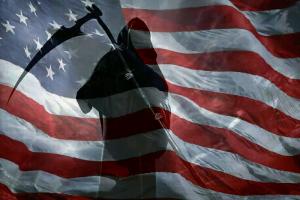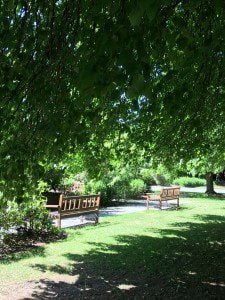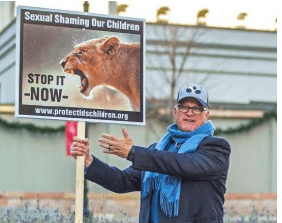 In New Zealand, I grew up hearing that American missionaries loved my congregation, my city, my country and me. They would often effuse from the pulpit, ‘We love the people of New Zealand so much’. I’m sure those speakers hadn’t intended the opposite effect because their frequent effusions of love delivered so emphatically by passing American missionaries, and American church ‘authorities’ didn’t make me feel loved at all.
In New Zealand, I grew up hearing that American missionaries loved my congregation, my city, my country and me. They would often effuse from the pulpit, ‘We love the people of New Zealand so much’. I’m sure those speakers hadn’t intended the opposite effect because their frequent effusions of love delivered so emphatically by passing American missionaries, and American church ‘authorities’ didn’t make me feel loved at all.
I knew love in quiet and small spaces where familiar eyes looked at me with knowing, and whispered their affections upon warm and sacred words, breathed into my ears alone. I barely knew these loud and friendly strangers, who, no matter how few, seemed to take up large spaces at the podium or in foyers, who begged for attention like large flickering televisions bursting with colour and noise. Even at that young age I recall those emotional tearless outbursts made me feel very small. As if we from New Zealand were things to be petted and admired. We were a pleasing spectacle of foreign faithfulness that stood voiceless, with an aesthetically pleasing backdrop of impressive Kiwi scenery. We were postcard moments with only a grateful smile to give back from the pews. Their admiration of us made me want to hang my head low in embarrassment and always, always, with the words running over my mind, ‘you don’t know me, you don’t know me to love me’.
That I belonged to an American church was recalled to me when visitors burst out from the metropol to re-claim the periphery. Americans came to take over, to re-scent themselves on the outposts, to survey and to reshape New Zealand Mormon spaces, both brown and white. They breezed in with the confidence of celebrities and movie stars, with the kind of smiles only one who feels utterly entitled has permission to wear. I used to look around me shamefully at the quiet and unassuming familiar faces of those in the congregation who I knew and loved. I compared us with them. We wore reliable clothes, modest and tired. They came in a riot of colour and style which hung perfectly to their manicured frames.
And then we had an American mission president (from Utah) who, it became quickly apparent, was rather well healed and not short a bob. The generous and well appointed Church owned mission home was located in my ward boundaries (parish). My local congregation which was largely comprised of working class, first generation Mormons, recent converts and the kind of socially aberrant strays that dot many wards in the ‘mission field’ before the second generation middle-classes shoo them away with their palpable intolerance of social difference. I recall with clarity one day when Sister Mission President stood to address us. Her lips bright with lipstick, her hair a perfect, coloured beehive, and her fingers dripping with dazzling accoutrements. Everything about her made our paltry attempts at Christianity seem so parochial and outdated. That odd fusion of Christianity and church membership seemed so wrapped up in our access to A type American personalities and personal wealth that I wondered if we would ever measure up and be the Mormons we were supposed to be. We never looked as good, we didn’t have the money they had, and our words seemed so tiny and reluctant in comparison.
I don’t deny that they had a special touch, a way of making us little folk feel special with a warm and knowing squeeze but while they were part of us, we were never part of them – they had arrived to straighten us out, to impart something to us that we didn’t know and to ensure that the church looked like it was supposed. These were not dialogical relationships framed in a commitment to the transformative powers of the divine, where our love of the Saviour was mutually nurtured, rather these were instructive paternalistic relationships in which we were required to play the part of willing listener, contrite colonial or grateful congregation. Though I didn’t have the words to say it then – these encounters gave rise to a lingering identity crisis. Mormonism meant more than just pleasant stories from the New Testament and the Book of Mormon, it meant more than knowing Jesus was my friend and that the Holy Ghost could speak to me in a still small voice. It meant the way are in space, it meant the privilege of border crossing and above all it meant material wealth and an indoctrination into the logic of conservative America.











